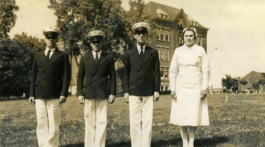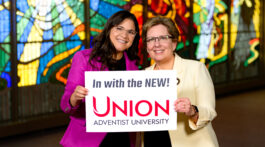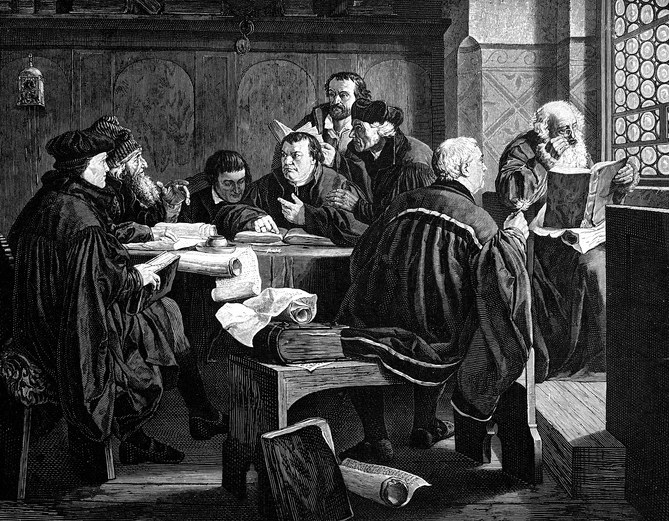Sabbath School Lesson for April 27-May 3, 2024
Overview of Lesson 5, Faith Against All Odds
Memory Text: “Your word I have hidden in my heart, that I might not sin against You.” Psalm 119:11, NKJV
God’s word was especially precious to those early Protestant Reformers, as they broke out of the ranks of corrupt church leaders and began to see the erroneous beliefs that had been coming out of papal Rome. No longer were they content to blindly follow the false ideas preached to them from a selfish, pompous church hierarchy.
Through faithful men like Wycliffe and Tyndale, the Bible truth of sola scriptura (Scripture alone) became the prevailing thought among God’s humble followers. Getting the Bible into the hands of everyone became their goal, as they feverishly worked to translate the Scriptures into their native language, so the common people could see God’s truth for themselves.
Then the beliefs of sola gratia (grace alone) and sola fide (faith alone) were discovered by men like Martin Luther and John Wesley. They courageously began to rely on faith and the grace of God to save them, rather than their own works, even though their divinely-inspired ministries ultimately cost them their lives.
Read chapters 7-11 of The Great Controversy for historical background of our lesson this week. It will cover these topics:
- Sunday: God’s Word Alone–saturating our minds with God’s word
- Monday: Passing on God’s Word–sharing the truths that are in the Bible
- Tuesday: Enlightened by the Spirit–allowing the Holy Spirit to interpret Scriptures
- Wednesday: Christ Alone…Grace Alone–relying on God’s grace
- Thursday: Obedience–The Fruit of Faith–letting our faith sustain us
Sunday: God’s Word Alone
The early Reformers were thrilled to find the Scriptures, which had so long been out of reach for their study and enlightenment. The light that shone from its pages, however, was so bright that the truths which it uncovered must be discovered gradually over time.
The goal of these first, innovative theologians was merely to bring God’s word, in its entirety, to the populace, allowing them to uncover its teachings and make them their own. To do this, they realized that the Bible must be translated into the spoken language of the people. For John Wycliffe, in the 1300s, that meant the English language. He excitedly undertook the task then of translating the Latin Vulgate into English.
Having the Bible available to them turned their sorrows into joy, their doubts into certainty, and their weaknesses into strength. No casual, superficial study would satisfy these Reformers. They saturated themselves with the light that flowed from the pages of Scripture now available to them.
Bible Verses:
- Psalm 119:103, 104, 147, and 162
What should be our attitude when it comes to Bible study? What can it do for us?
- Revelation 22:2
How does Bible study fully energize us physically, mentally, emotionally, and spiritually, bringing us healing and life like the leaves on God’s tree of life described in Revelation?
Monday: Passing on God’s Word
Just as God commanded the light to shine on the first day of creation, He orchestrated the light that shone out of the darkness of papal Rome’s medieval era.
Wycliffe’s work of translating the Bible was continued 140 years later by another Bible scholar, William Tyndale. Tyndale produced the first English Bible that used the original Hebrew and Greek texts. Less than a century after he was martyred for his faith, the familiar King James Version was published in 1611.
The popular King James Version drew heavily from Tyndale’s earlier works. It was approximately 80% based on Tyndale’s translation. By this time, the invention of the printing press made God’s Holy Bible even more accessible to the masses.
These early Reformers were not only content with finding God’s truths for themselves, but they were excited enough to share this treasure with as many others as possible. We should also take every opportunity to pass on God’s word to those who are thirsting for it.
Bible Texts:
- 2 Corinthians 4:1-6, 2:4
What does the Bible teach us about who God is and why is it important to share that knowledge with others?
- Daniel 12:3 and Revelation 14:13
How can we see Tyndale’s life and other Reformers in these texts?
What opportunities do you take to reflect the light of God’s word and influence others for eternity? How could we do more?
Tuesday: Enlightened by the Spirit
Early Reformers soon came to understand that the Holy Spirit should be relied on for interpreting doctrine, not the priests and popes they had previously followed blindly without question. The same Holy Spirit who had inspired the authors of His word would enlighten their understanding of it and guide believers into truth (John 16:13).
With the entire Bible available for their study, the Reformers soon learned that when a passage seemed beyond their understanding, the Holy Spirit would guide them to places where the wording was more clear.
Instead of enlightening, Satan’s goal has always been to obscure the teachings and value of God’s word. He either promotes church tradition above keeping God’s commandments (Matthew 5:3 and Acts 5:29), or he leads us to view the Scriptures as merely good literature that isn’t reliable and true. In addition, he causes the cares of life to distract us from our time in God’s word.
Bible Verses:
- John 14:25, 26, 16:13-15, and 2 Peter 1:20, 21
What is the Holy Spirit’s role in helping us understand God’s word?
Will we ever know ALL the truth, and why, or why not? Explain your answer.
Wednesday: Christ Alone…Grace Alone
Many of us have been taught that when we do our best, God does the rest. But, Martin Luther found that actually, God does it all. Our efforts are of no value when it comes to being saved. This isn’t to say that obedience isn’t important in the Christian life, but obedience, or even faith, isn’t what saves us. “For by grace you have been saved through faith, and that not of yourselves; it is the gift of God” (Ephesians 2:8).
This one verse was happy news to Luther, who had spent years trying to please God through oppressive rituals and acts of penance that the Roman church imposed on its followers. How thrilling it must have been for him to find that Christ alone led a perfect life, and His righteousness can be ours, just for the asking.
Along with the principle of sola scriptura, sola gratia and sola fide were added as welcome insights into the gracious, loving character of God. Only by His grace and our faith in Him are we made fit for eternal life in God’s heavenly kingdom.
Bible Verses:
Ephesians 2:8, 9 and Romans 3:23, 24, 6:23, 5:8-10
- What do we learn about how to be saved and about the character of God through these verses?
Thursday: Obedience–The Fruit of Faith
After Martin Luther was successful in getting believers to look to Jesus for their salvation, it became clear that their previous, rigid performance of religious duties was not enough to keep them close to their beloved Master. The grace that God bestows on us also transforms us in ways that are designed to draw us closer to Him every day of our lives.
The growing, transforming power that grace and the Holy Spirit makes possible was evident in the obedience to God’s law that became the fruit of their faith. Reformers like John Wesley, inspired by Luther’s teachings, encouraged faithful obedience. This kind of obedience would make them free from the bondage of their previous devotion to the traditions of the church, and the debasing corruption of the secular world.
Knowing Christ makes us want to reflect Him by becoming obedient as He was, even unto death. Most of the Reformers sadly experienced suffering and death for their obedience to God. We can expect no more today when we take a stand for God and obediently follow all His commandments, despite opposing forces.
Bible Verses:
- Romans 3:27-31, 6:15-18, and 8:1,2
How does faithful obedience make us slaves to righteousness? How is this different and better than being slaves to the law, or to sin?
- 1 Peter 2:2, 2 Peter 3:18, Colossians 1:10, and Ephesians 4:18-24
Although forgiveness for sin happens instantly, why does it take longer for obedience to change us?
Why is it comforting to know that it’s a growth process the Holy Spirit uses to make us more like Christ?
Friday: Final Thoughts
Christians have always struggled with the concepts of grace and the law, of faith and works. The pendulum of Christian practice often swings too far to the left or the right, making Christians look like hypocrites to the world. Either legalists or those who don’t practice what they preach are both positions to be avoided.
This is why God’s saints are said to be “those who keep the commandments of God AND the faith of Jesus” (Revelation 14:12). Both faith and works are equally important in keeping us balanced enough to walk steadily, without falling away from God.
Martin Luther’s well-known hymn, “A Mighty Fortress”, expresses his understanding of the gospel. He recognized our struggle to obey the law, and that it must be done with the strength only God can provide. “Did we in our own strength confide, Our striving would be losing…” But as the hymn goes on to say, Jesus will win the battle, when we allow God to be our fortress. The faith of Jesus keeps us strong.
Next week, our lesson will be based on chapters 12-17 of “The Great Controversy” .
“The Great Controversy” in today’s English, called “Love Under Fire”, is available online at https://media2.egwwritings.org/pdf/en_LF.pdf
Next Week: The Two Witnesses
To read the Sabbath School Lesson Quarterly and see more resources for its study, go to










